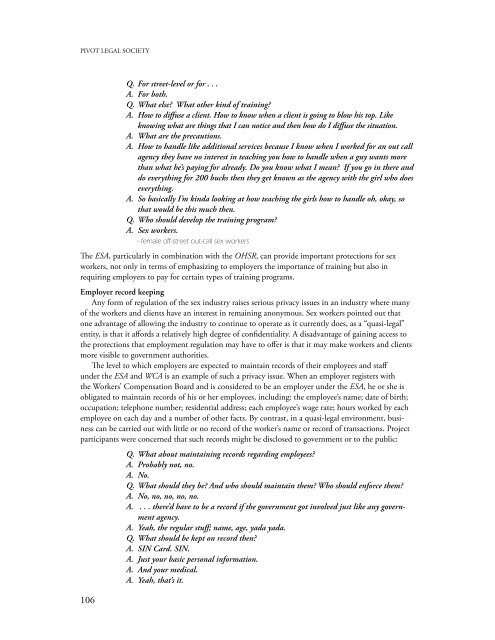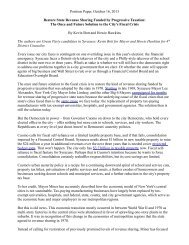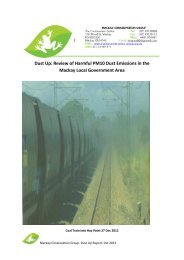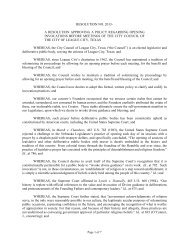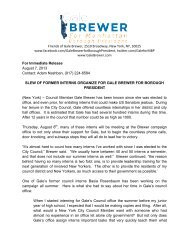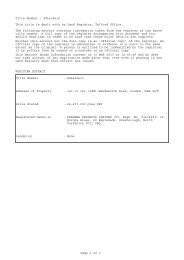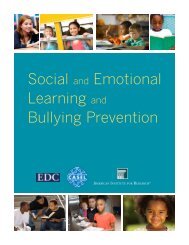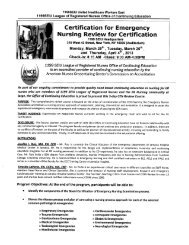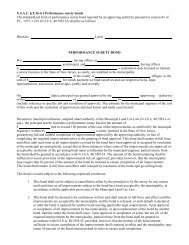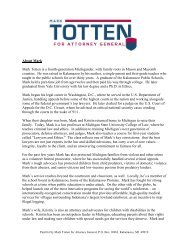Beyond Decriminalization: Sex-work, Human Rights and a New ...
Beyond Decriminalization: Sex-work, Human Rights and a New ...
Beyond Decriminalization: Sex-work, Human Rights and a New ...
- No tags were found...
Create successful ePaper yourself
Turn your PDF publications into a flip-book with our unique Google optimized e-Paper software.
PIVOT LEGAL SOCIETY106Q. For street-level or for . . .A. For both.Q. What else? What other kind of training?A. How to diffuse a client. How to know when a client is going to blow his top. Likeknowing what are things that I can notice <strong>and</strong> then how do I diffuse the situation.A. What are the precautions.A. How to h<strong>and</strong>le like additional services because I know when I <strong>work</strong>ed for an out callagency they have no interest in teaching you how to h<strong>and</strong>le when a guy wants morethan what he’s paying for already. Do you know what I mean? If you go in there <strong>and</strong>do everything for 200 bucks then they get known as the agency with the girl who doeseverything.A. So basically I’m kinda looking at how teaching the girls how to h<strong>and</strong>le oh, okay, sothat would be this much then.Q. Who should develop the training program?A. <strong>Sex</strong> <strong>work</strong>ers.- female off-street out-call sex <strong>work</strong>ersThe ESA, particularly in combination with the OHSR, can provide important protections for sex<strong>work</strong>ers, not only in terms of emphasizing to employers the importance of training but also inrequiring employers to pay for certain types of training programs.Employer record keepingAny form of regulation of the sex industry raises serious privacy issues in an industry where manyof the <strong>work</strong>ers <strong>and</strong> clients have an interest in remaining anonymous. <strong>Sex</strong> <strong>work</strong>ers pointed out thatone advantage of allowing the industry to continue to operate as it currently does, as a “quasi-legal”entity, is that it affords a relatively high degree of confidentiality. A disadvantage of gaining access tothe protections that employment regulation may have to offer is that it may make <strong>work</strong>ers <strong>and</strong> clientsmore visible to government authorities.The level to which employers are expected to maintain records of their employees <strong>and</strong> staffunder the ESA <strong>and</strong> WCA is an example of such a privacy issue. When an employer registers withthe Workers’ Compensation Board <strong>and</strong> is considered to be an employer under the ESA, he or she isobligated to maintain records of his or her employees, including: the employee’s name; date of birth;occupation; telephone number; residential address; each employee’s wage rate; hours <strong>work</strong>ed by eachemployee on each day <strong>and</strong> a number of other facts. By contrast, in a quasi-legal environment, businesscan be carried out with little or no record of the <strong>work</strong>er’s name or record of transactions. Projectparticipants were concerned that such records might be disclosed to government or to the public:Q. What about maintaining records regarding employees?A. Probably not, no.A. No.Q. What should they be? And who should maintain them? Who should enforce them?A. No, no, no, no, no.A. . . . there’d have to be a record if the government got involved just like any governmentagency.A. Yeah, the regular stuff; name, age, yada yada.Q. What should be kept on record then?A. SIN Card. SIN.A. Just your basic personal information.A. And your medical.A. Yeah, that’s it.


